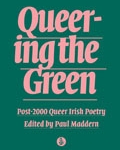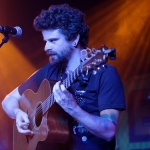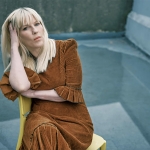 In my time as Online Writer-In-Residence for the Irish Writers Centre I attended an open mic poetry night in Dublin. Slots for reading filled up well before the night itself and the room was packed. Queer poets read alongside straight and cisgender poets and I found myself alarmingly surprised at the ease of it, wondering why I had never, not once, as a straight cisgender person, been to a mainstream poetry evening in the North which featured poetry about queer lives, queer love, queer sex.
In my time as Online Writer-In-Residence for the Irish Writers Centre I attended an open mic poetry night in Dublin. Slots for reading filled up well before the night itself and the room was packed. Queer poets read alongside straight and cisgender poets and I found myself alarmingly surprised at the ease of it, wondering why I had never, not once, as a straight cisgender person, been to a mainstream poetry evening in the North which featured poetry about queer lives, queer love, queer sex.
As I thought about it I realised that the poetry I’d experienced in the North was also almost completely spoken by white poets. I left the reading elated, having heard some wonderful work, but also sad because I knew that either I had missed the events in the North where queer and non-white poetry was spoken, or those events did not exist.
I was very excited, then, to open this collection of recent queer Irish poetry, and delighted to find poets from both sides of our border. In his introduction, Paul Maddern speaks of poetry as “by its very nature… a bit other, a bit queer” but he is careful to add, “but only we are queer”, and it is this very personal experience of queerness that we are invited into.
Queering The Green is a beautiful and varied collection of work. Mothers and parenthood are recurring themes, and pieces about romantic and sexual relationships reach widely from hook-ups on Grindr, to love poetry, to Gail McConnell’s lovely piece Conversion, about converting a civil partnership to marriage. There are pandemic poems by Simon Costello and Chandrika Narayanan-Mohen, Irish language poems by Annemarie Ní Churreáin. Some pieces are so raw in their accuracy that I almost shrank from them; Toby’s Buckley’s Bufo is reminiscent of Heaney’s Death of a Naturalist in its stark natural imagery, and Sarah Clancy’s What A Bomb Hits is both sad and shocking.

Annemarie Ní Churreáin
A History of Snow, by Paula Cunningham, about a young child’s illness and the kindness of a stranger, was extremely moving to read as a mother myself, but I was also deeply moved by those poets with whom I do not share life experience; William Keohane’s stunning poems Other Men and Small Blues brought me to tears, and his The Careful Destruction of a Heartbeat made me think of Yeats’ plea for a lover’s soft tread.
But these poets are not Yeats or Heaney, or Lorca or Frank O’Hara or any of the other poets my mind went to as I was reading. Anna Loughran’s The Seahorses in Exploris, reminded me that we bring ourselves to art; as much as we want to immerse ourselves in someone else, we cannot fully manage it: “you realise they are not like you, almost”… but these poems reach out in a spirit of such generosity that they invite the reader to feel as the speaker does about the seahorses: “It is beautiful to watch them/ in frame; it is beautiful to be myself”. It is in the “almost” that we can relax- we are being invited in, as a matter of extended human grace, to listen, and to examine ourselves.
I fully recommend reading the poems in Queering The Green aloud, and I will be seeking every opportunity to hear them spoken aloud by the writers themselves. Paul Maddern has put together an important and illuminating collection which made me feel excited about poetry throughout Ireland, and hopeful about what is to come.
Shirley-Anne McMillan
Various Poets (Ed. Paul Maddern) – Queering the Green: Post 2000 Queer Irish Poetry (Lifeboat Press)
(This review originally appeared in Issue 6 of Dig With It magazine. More info here.)












 Twitter
Twitter